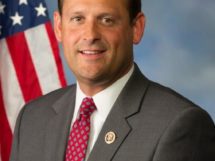
By Jason Bailey
The U. S. Supreme Court yesterday overruled prior decisions that had unfairly restricted the ability of states to collect sales taxes from online, catalog and other remote retailers. Before the new ruling, businesses were only required to collect and remit sales tax if they had a “physical presence” in a state, such as employees or facilities. The ruling allows Kentucky to collect much-needed new revenue for budget needs while leveling the playing field between brick-and-mortar local businesses that already must collect sales taxes and out-of-state retailers that do not.
In its decision on South Dakota v. Wayfair, the Court upheld a South Dakota law that requires remote retailers to collect and remit sales taxes, exempting those businesses with less than 200 separate sales into South Dakota or less than $100,000 in total in-state sales. The court also said South Dakota’s approach avoids posing an “undue burden on interstate commerce” by the state’s participation in the Streamlined Sales Tax Project, an effort to make easier the collection of sales tax. Among other measures, members of the project agree to pay for compliance software for retailers that are not physically present.
These elements of the ruling suggest Kentucky is well positioned to begin collecting sales taxes on remote purchases. In the last legislative session, the state enacted the South Dakota language requiring remote retailers to collect the tax and exempting small sellers, and Kentucky is already a longtime member of the Streamlined Sales Tax Project.
Although it is unclear exactly how much revenue Kentucky could collect, a U. S. Government Accountability Office study from November estimated a potential of between $93 and $140 million for Kentucky if the tax was collected from all remote sellers. That won’t solve Kentucky’s budget problems, and it will take time to implement the new collection requirement. But the court’s ruling is some good news as the state begins implementing a new two-year budget that includes yet another round of cuts to schools, universities and a variety of important public investments.
Jason Bailey is the executive director of the Kentucky Center for Economic Policy




















Add Comment